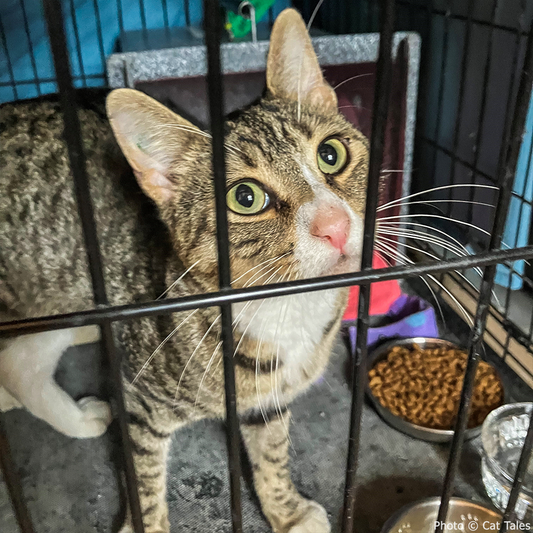U.S. Lawmakers Push to End Inhumane Horse Slaughter
Matthew Russell
Photo: Pexels
Each year, tens of thousands of horses are shipped from the United States to Mexico and Canada, where they face inhumane slaughter for meat, often destined for foreign markets.
The Safeguard American Food Exports (SAFE) Act aims to put an end to this practice, banning both the slaughter of horses in the U.S. and their export for the same purpose. This bill represents a critical legislative effort to protect American horses from the brutal reality of slaughter.

The Horrors of Horse Slaughter
Horse slaughter is a particularly cruel practice. Horses are not bred for meat, and their anatomy makes them difficult to stun effectively. As a result, many horses endure repeated blows to the head and are sometimes conscious during dismemberment, according to a fact sheet from the American Society for the Prevention of Cruelty to Animals (ASPCA), reported the. The SAFE Act is designed to address these atrocities by ensuring that no horse is subjected to such cruelty, whether within U.S. borders or abroad.
The current situation is dire. Despite a 2007 ban on horse slaughter in the U.S., horses are still being exported for slaughter, and this loophole has allowed the cruel industry to continue thriving. Recent data from the U.S. Department of Agriculture (USDA) shows that nearly 18,000 horses were shipped from Arizona, New Mexico, and Texas to Mexico for slaughter in 2023 alone, reports the Center for a Humane Economy.

Public Health Risks of Horsemeat
Beyond the ethical concerns, horsemeat poses serious risks to human health. Horses in the U.S. are routinely given medications that are not approved for animals intended for human consumption. Substances like phenylbutazone, a common anti-inflammatory drug, can cause severe health issues in humans, including bone marrow toxicity and various blood disorders the Animal Welfare Institute reported. Despite these dangers, horsemeat continues to enter the food supply chain, particularly in foreign markets, where it is often mislabeled as beef.
The European Union (EU) has already taken steps to protect its consumers by banning horsemeat imports from countries like Mexico, where much of the horsemeat is suspected to contain harmful residues. This precaution underscores the importance of ensuring that American horses do not end up on dinner plates abroad, which is precisely what the SAFE Act seeks to prevent.

Bipartisan Support and Legislative Progress
The SAFE Act has garnered significant bipartisan support in Congress. Introduced by Representatives Vern Buchanan (R-Fla.) and Jan Schakowsky (D-Ill.), the bill also enjoys backing from a wide range of animal welfare organizations, including the ASPCA, the Humane Society of the United States, and the Animal Welfare Institute.
As of January 2024, more than half of the U.S. House of Representatives has cosponsored the SAFE Act, marking a significant milestone in the fight to protect horses, reported the Center for a Humane Economy. The bill’s companion in the Senate, led by Senators Bob Menendez (D-N.J.) and Lindsey Graham (R-S.C.), also has strong bipartisan support. Advocates are urging Congress to prioritize the SAFE Act in the upcoming legislative session, highlighting the overwhelming public support for a permanent ban on horse slaughter.

The Fight Against Kill Buyers
One of the most egregious aspects of the horse slaughter industry is the role of kill buyers. These individuals, often posing as legitimate buyers or even as rescue workers, purchase horses with the intent of selling them to slaughterhouses abroad. They frequent auctions, outbidding families and rescue organizations, and contribute significantly to the pipeline of horses destined for slaughter, reported the Humane Society Legislative Fund.
The SAFE Act would put an end to this predatory practice by eliminating the market for horsemeat and closing the loophole that allows kill buyers to continue their trade. Without the financial incentive provided by slaughter, many horses could find loving homes, as research shows that 2.3 million Americans are willing and able to adopt a horse the ASPCA maintains. This statistic highlights the potential for rehoming horses rather than sending them to slaughter, making the SAFE Act a humane and practical solution to a longstanding problem.

The Path Forward
The SAFE Act represents a crucial opportunity to protect American horses from the horrors of slaughter. With strong bipartisan support and growing public awareness, the time is ripe for Congress to act. The bill’s passage would not only save tens of thousands of horses each year but also reinforce the United States’ commitment to humane treatment of animals and public health.
As the legislative process continues, advocates encourage the public to contact their representatives and urge them to support the SAFE Act. The overwhelming majority of Americans oppose horse slaughter, and with continued pressure, there is hope that this brutal practice will finally be consigned to the history books.
Click below to take action for horses!
Matthew Russell is a West Michigan native and with a background in journalism, data analysis, cartography and design thinking. He likes to learn new things and solve old problems whenever possible, and enjoys bicycling, spending time with his daughters, and coffee.




















